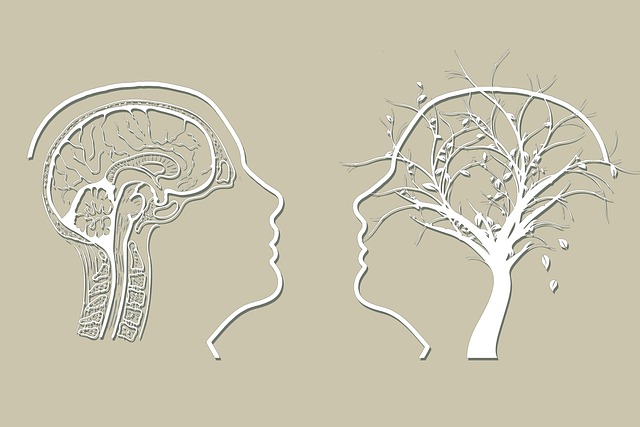In today's demanding work environments, particularly in Lone Tree, stress is a significant issue impacting professionals' well-being and productivity. Chronic work stress leads to burnout, absenteeism, decreased job satisfaction, and long-term health problems. To combat these challenges, this text emphasizes the need for awareness campaigns, mental health policy advocacy, risk assessment strategies, and tailored therapy options. Effective solutions include mindfulness meditation, cultural competency training, risk management planning, and sustainable stress reduction practices. Building resilience through self-care and maintaining a healthy work-life balance is crucial. Lone Tree Workplace Issues and Job Stress Therapy offers support, preventing conditions like depression and burnout, promoting well-being, and enhancing overall job satisfaction.
“Stress management techniques are essential tools in tackling the prevalent issue of job stress, especially in today’s fast-paced work environments. This article explores effective strategies to combat ‘Lone Tree Workplace Issues’—a term for the isolating effects of high-pressure jobs. We delve into understanding workplace stress and its profound impact on mental and physical health. Through a multi-faceted approach, including mindfulness, relaxation practices, and building resilience, individuals can master job stress therapy, enhancing overall well-being.”
- Understanding Stress in the Workplace: A Common Struggle
- The Impact of Job Stress on Mental and Physical Health
- Effective Stress Management Techniques for Individuals
- Incorporating Mindfulness and Relaxation Practices at Work
- Building Resilience: Long-term Strategies for Overcoming Lone Tree Workplace Issues
Understanding Stress in the Workplace: A Common Struggle

In today’s fast-paced and demanding work environments, stress has become an all too common companion in the Lone Tree workplace. Job-related stress is a significant struggle that many professionals face daily, impacting their overall well-being and productivity. From heavy workloads to tight deadlines, high expectations, and complex relationships with colleagues or clients, these factors contribute to a constant state of tension and anxiety. Understanding and addressing workplace stress is essential for creating a healthier and more fulfilling professional setting.
The impact of chronic work stress can be severe, leading to physical and mental health issues. It may manifest as burnout, increased absenteeism, decreased job satisfaction, and even long-term disabilities. Therefore, recognizing the signs and symptoms of excessive stress is crucial. This includes awareness campaigns that educate employees and employers about manageable stress levels, Mental Health Policy Analysis and Advocacy, and implementing risk assessment strategies for mental health professionals to ensure they can handle these challenges effectively.
The Impact of Job Stress on Mental and Physical Health

Job stress is a prevalent issue in today’s fast-paced work environment, with many individuals facing challenges that can significantly impact their well-being. When left unaddressed, job-related stress can lead to both mental and physical health problems, affecting overall quality of life. The constant pressure, demanding deadlines, and high expectations can contribute to heightened anxiety levels, depression, and burnout.
Lone Tree Workplace Issues and Job Stress Therapy play a crucial role in helping individuals cope with these challenges. By implementing effective stress management techniques, employees can enhance their resilience, a key factor in preventing both short-term and long-term health issues such as Depression Prevention and Burnout Prevention. Building resilience enables workers to navigate through stressful situations, fostering a healthier work-life balance and ultimately contributing to improved overall well-being.
Effective Stress Management Techniques for Individuals

Managing stress effectively is a vital skill for navigating both personal and professional challenges. For individuals dealing with Lone Tree workplace issues or job-related stress, various techniques can offer much-needed relief and improvement in mental well-being. One powerful tool is mindfulness meditation, which has gained significant traction in the field of mental health. This practice encourages individuals to focus on the present moment, reducing anxiety associated with past or future concerns. By cultivating a non-judgmental awareness, one can enhance their ability to cope with stressful situations at work and beyond.
In addition to mindfulness meditation, Healthcare Provider Cultural Competency Training offers valuable insights into understanding and addressing diverse patient needs. This training equips professionals with the knowledge to recognize and respect cultural differences, fostering a more inclusive environment. Furthermore, Risk Management Planning for Mental Health Professionals is essential in ensuring practitioners can effectively manage their own stress levels while providing top-quality care. These strategies collectively contribute to creating a healthier, more supportive work environment, where individuals can thrive despite the challenges of modern workplace dynamics and Lone Tree-specific issues.
Incorporating Mindfulness and Relaxation Practices at Work

In today’s fast-paced work environment, where Lone Tree workplace issues and job stress therapy are becoming increasingly prevalent, incorporating mindfulness and relaxation practices has become essential for maintaining a healthy work-life balance. Stress management is not just about taking breaks; it involves cultivating emotional intelligence and adopting sustainable practices that can be woven into daily routines. Techniques such as meditation, deep breathing exercises, and yoga help employees navigate the hustle and bustle of their desks while fostering mental clarity and emotional resilience.
By integrating these mindfulness practices at work, organizations can create a supportive atmosphere that encourages crisis intervention guidance. Regular sessions focused on stress reduction not only enhance overall well-being but also boost productivity and job satisfaction. In addition to improving individual performance, such initiatives contribute to a positive organizational culture where employees feel valued and empowered to manage their workload effectively.
Building Resilience: Long-term Strategies for Overcoming Lone Tree Workplace Issues

Building resilience is a vital aspect of navigating Lone Tree Workplace Issues and managing job stress. It involves cultivating inner strength and coping mechanisms that enable individuals to bounce back from challenging situations. Through long-term strategies, employees can develop a robust mindset that enhances their ability to handle workplace pressures. This includes adopting self-care practices such as regular exercise, mindfulness techniques, and maintaining a healthy work-life balance. By prioritizing personal well-being, individuals become better equipped to face stressful scenarios, ensuring they remain calm and composed under pressure.
Public awareness campaigns play a significant role in fostering this resilience by educating employees about stress management. These initiatives can help break the stigma surrounding job stress therapy and encourage open conversations around mental health. When employees feel supported and empowered to seek assistance, they are more likely to develop effective coping strategies, ultimately leading to improved productivity and job satisfaction. Building resilience is an ongoing process that requires dedication and a holistic approach, encompassing both personal growth and organizational support.
Stress management techniques are essential tools for navigating the challenges of a Lone Tree workplace. By understanding the impact of job stress on mental and physical health, individuals can proactively incorporate mindfulness, relaxation practices, and resilience-building strategies. These techniques, when adopted at work, not only enhance overall well-being but also foster a healthier, more productive environment. Incorporating these practices into daily routines can significantly mitigate Lone Tree workplace issues and provide effective Job Stress Therapy, ensuring employees thrive in their professional lives.














